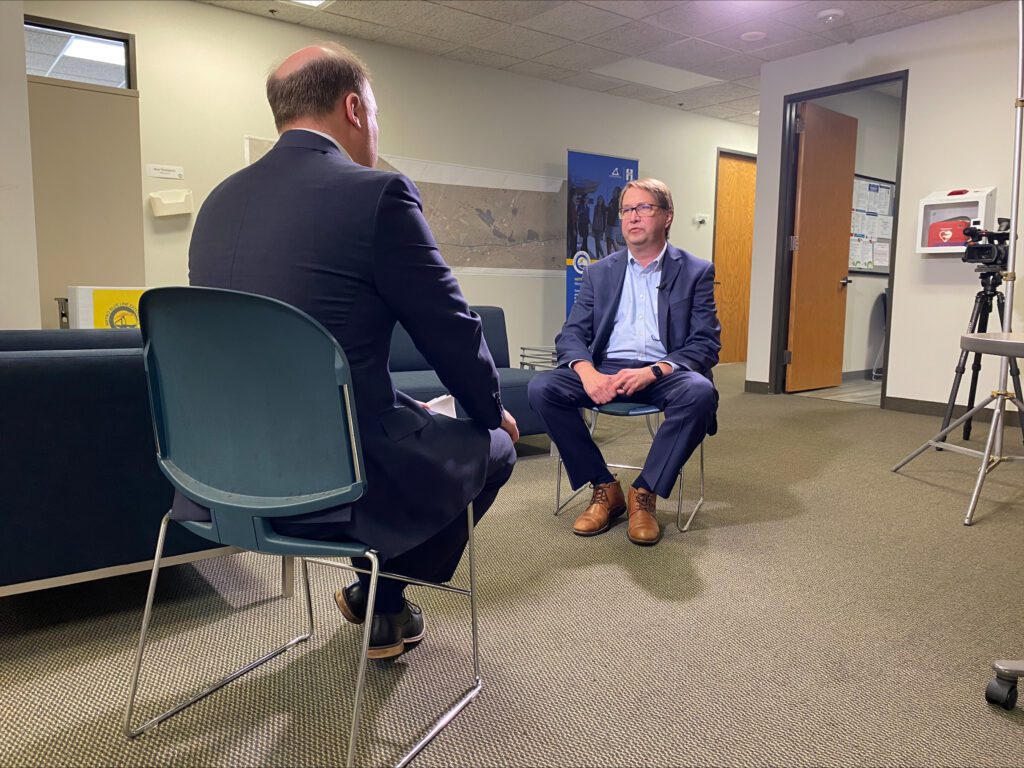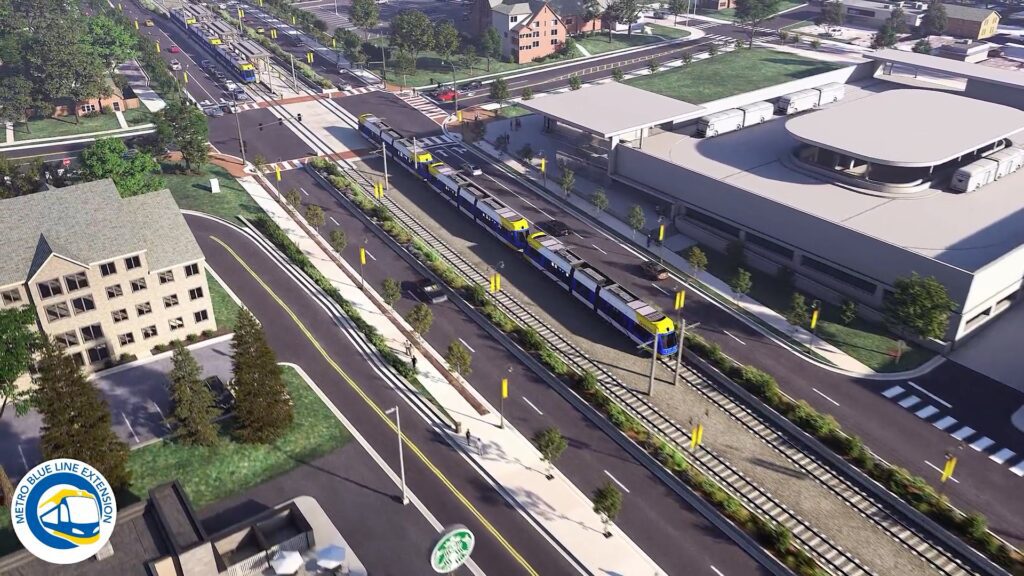‘It’s coming.’ Why ‘No’ might not mean ‘No’ for $3B light rail extension.
At least two cities along Metro Transit’s proposed Blue Line Extension could formally push back on the current design of the project when it comes up for a vote as soon as next week.
Those votes, known as municipal consent, mark a critical milestone in the $3 billion plan to run light rail trains north out of Minneapolis into Robbinsdale, Crystal and Brooklyn Park.
But even without the so-called “consent” of those cities, 5 INVESTIGATES has learned there is little expectation that those votes alone will be enough to stop the project in its tracks.
It is a reality acknowledged by some mayors, opponents of the project and Metro Transit itself.
“Municipal consent is not an opportunity to stop this project,” said Robbinsdale Mayor Bill Blonigan.
Taking a stand
The final design of the Blue Line Extension will likely impact homeowner Aaron McMenamy more than many others.
His house is just steps away from a proposed light rail station in Robbinsdale on County Road 81, also known as Bottineau Blvd. A large banner now hangs from McMenamy’s fence that says, “STOP LIGHT RAIL ON 81 – Tell City Council to vote NO!”
“I understand that, more than likely, this thing is coming through,” McMenamy said. “But I don’t think forcing homeowners to be in such close proximity to a station is a good idea.”
Although McMenamy says he has been contacted by representatives from Metro Transit, he remains skeptical that serious consideration has been given to the possibility that people standing on the station platform would be able to see into his backyard.
“I think that someone needs to take a stand,” McMenamy said. “I know that others have tried, but I think that it really does start with another government body being able to step in and say, ‘let’s get this playing field equal.’”
Equal partners?
The concept of an equal playing field is a sore spot for leaders in Robbinsdale and Crystal, such as mayors Blonigan and Jim Adams, who have been raising concerns about the design of the Blue Line Extension since the proposed route was moved away from the BNSF freight rail corridor.
“They’re trying to sell us on this project in the way that they see fit,” Adams said. “A lot of our input from the city, or my input specifically, it wasn’t really entertained by the project. And the project really is doing what they want.”
Metro Transit managers, including Nick Thompson, project director for the Blue Line Extension, dispute that interpretation.
“We’ve been taking feedback from the cities for years now,” Thompson said during a 30-minute interview with 5 INVESTIGATES last month.

RELATED: New problem uncovered on notorious ‘pinch point’ for Southwest Light Rail
The City of Crystal recently sent a letter to Thompson outlining seven key concerns surrounding Metro Transit’s draft environmental impact statement for the Blue Line Extension.
Those issues include public safety, parking and vehicle traffic.
“It’s going to be reduced lanes. It’s going to reduce the volume,” Adams said. “We’re being told that, ‘Yes indeed, it’s going to handle any of the volume. In fact, it’ll handle it better.’ Well, I don’t buy it.”
Thompson insists those issues, along with others identified by Robbinsdale, will be addressed as the project moves forward.
“We are building a major infrastructure project in each of those cities and we see them as key partners just like Minneapolis, Brooklyn Park, and Hennepin County and others,” Thompson said.
Asked again if Crystal and Robbinsdale are equal partners, Thompson responded, “They’re key partners, yes.”
“Not a decision-making process”
Current plans for the Blue Line Extension have received mixed reviews from other local leaders, residents and taxpayers in the area.
5 INVESTIGATES contacted every city council member in Robbinsdale, Crystal and Brooklyn Park seeking comment about the project.
At least three campaigned on supporting the Blue Line Extension, but some now express concern about certain design elements, public safety and the project’s $3 billion price tag.
“They all get to make their decisions as elected officials of the cities and this is the point we get to go ask them what their opinion is,” Thompson said. “It is a big change and that’s why this step in the project is important.”

Despite the common understanding of the word “consent,” multiple city leaders along the proposed route of the Blue Line Extension tell 5 INVESTIGATES they do not expect their votes on municipal consent will stop the project from moving forward.
“You can give them municipal consent. You can just ignore it and do nothing, which is treated as giving municipal consent or you can say, ‘We deny and here’s the list of things that you should do. And if you do that, we give municipal consent,’” Blonigan explained. “That’s probably what we’re going to do.”
RELATED: More than 600 North Loop residents sign petition opposing Blue Line route
An informational flier from Metro Transit notes that municipal consent is “not a decision-making process for whether or not to build the project.”
In Brooklyn Park, Mayor Hollies Winston says the Blue Line Extension presents a great economic opportunity for his city.
He says leaders there have been working with Blue LIne project managers to address specific needs outside of the municipal consent process.
“The light rail will be coming and we just want to make sure public safety is addressed,” Winston said. “We have our own resources we’re setting aside to work with that, but we’re working closely with the Met Council to make sure they’re doing their part.”
Each city on the proposed route, along with Hennepin County, will vote on municipal consent by Oct. 10.